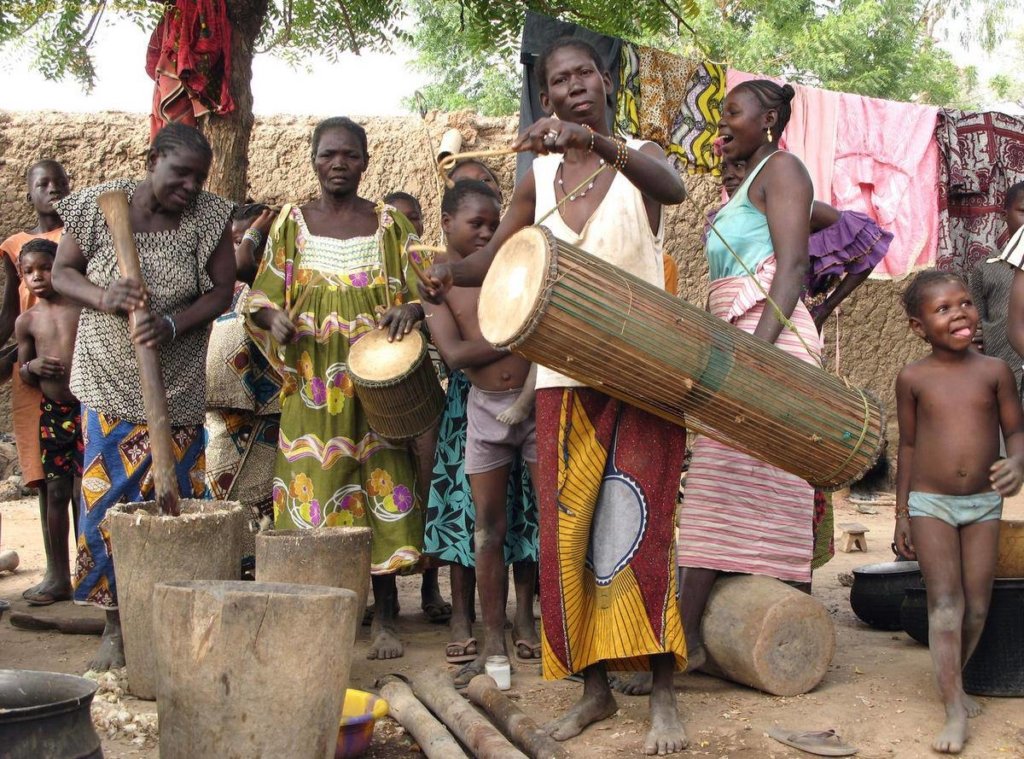Griots, also called jeli or jali, are said to be the holders of African history centuries before the colonizers found their way into the continent. The existence of griots helps put to rest the notion that Africa had no history prior to the coming of the colonial rulers in the 15th century.
The first griots trace back to the Malinke Empire in the 7th century. Malinke is also known as Mandinka or Maninka, an empire which existed between modern-day Mali, Guinea, Senegal and Ivory Coast.

Griots are referred to as living archives of the people who know all that is happening within their communities. They kept the history, customs and believes of the people through oral history in the form of music, myths, stories, praise songs, riddles and poetry.
The art of being a griot was passed on from older generation to a younger generation usually within a family. It is believed that being a griot was not an occupation picked up by just anybody. The griots of particular societies were families that are believed to have been part of the founders of the society or chosen by the gods through special rituals.
Once a child is born, preferably a male child, he starts going through the training process working closely with the older griots. They learnt the ways of the older griot by sitting through rituals, learning songs and following the griot for ceremonies. The life of a griot was solely dedicated to the practice hence he could hardly be involved in daily or social activities.
Griots of societies in ancient Africa were either male or female. However, preference and more prestigious responsibilities were often given to male griots of many of these societies. Female griots were trained in the same way as men but were given days off during menstruation because it was believed that a female, during her menstruation, was unholy and unfit to be in the presence of the gods. The female griots in training also learnt more from older female griots.

A griot had the skill and blessing of knowing and doing everything due to the fact that they were blessed by the gods and spirits of the land. Aside from being custodians of history, the griots had other responsibilities they performed.
Responsibilities of Griots
The main responsibility of a griot was to keep the history of his or her society. However, the griots were also divine healers and medicine men with cures to almost all ailments and spiritual problems. It was believed that in cases where the griots could not heal a person of a certain sickness, the gods had chosen that the person died.
The griots were regarded as divine healers who were even worshipped in some areas. They lived in the palaces with the ruler of the society or lived on the outskirts of their society to enjoy peace and be closer to the gods and spirits who did not like to be among people. The griots had remedies to sickness using natural resources as directed by the gods and spirits.

Griots also served as communicators between the living and the dead and gods or spirits of the land. Griots were regarded as humans with special purposes hence they could go into hours of trance to bring messages from the gods or spirits of the land. They also carried messages from the dead to the living in special cases where there were family disputes to settle. During wars, the griots, through the gods and spirits passed on strength to their soldiers and often predicted the victory or fall of a society.
Another role of griots was to serve as advisors to the royal courts and kings. The griots were always present during the meetings of the royal courts to help make final decisions, often they would settle complicated disputes amongst families or among rulers preventing unnecessary fights or wars.
They also kept records of births, deaths, wars and marriages of their society. They kept records of men who went to war and counted them after war.
Female griots were made to train women who were of age to get married. Male griots also trained men to hunt and be leaders of a household or war group. They also trained royals before they ruled and had the power to remove rulers from their positions.
Before colonization and the introduction of education, griots were a very important part of the African society and were protected at all cost. However, through the slave trade, many griots were taken as slaves cutting them off from their society. Many societies were also destroyed due to war and with the introduction of education and the skill of writing, the importance placed on griots was harshly removed.
Today, there are very few griots in African traditional societies. The few who still exist have been left with the role of performing music or spoken word at ceremonies. Many modern poets and spoken word artists in African countries, especially West Africa, like to refer to themselves as modern-day griots.










